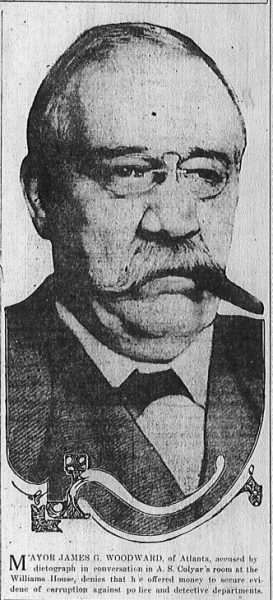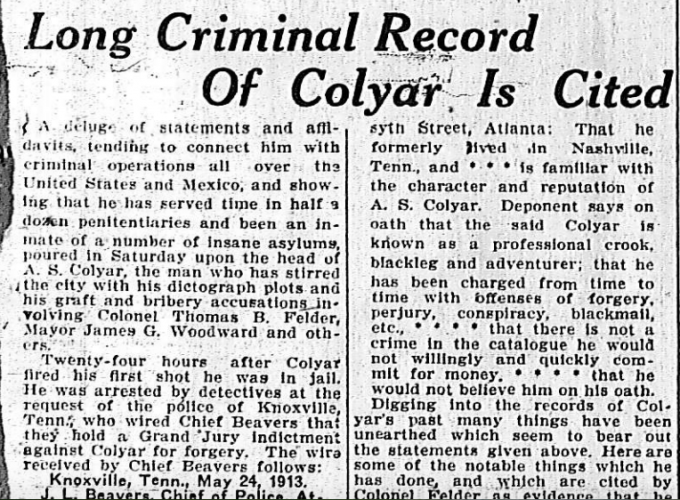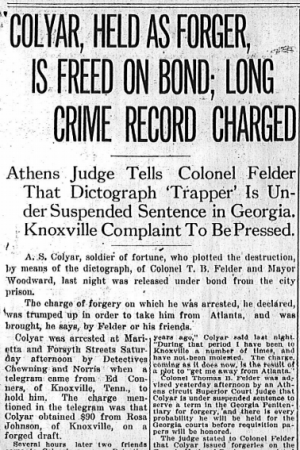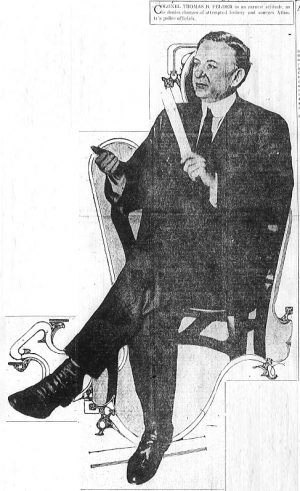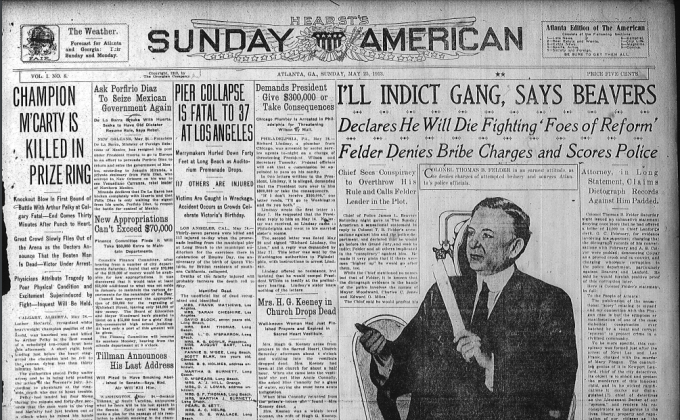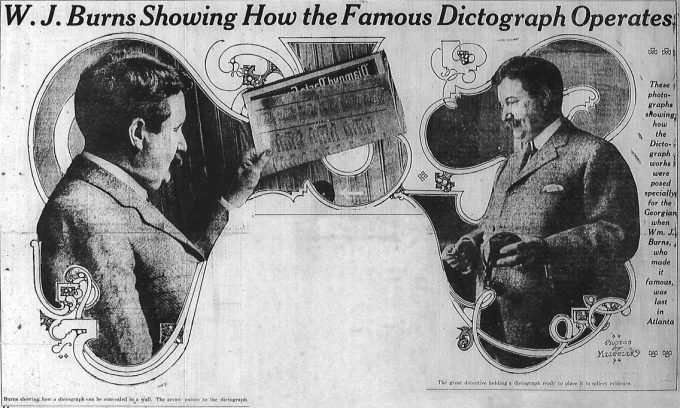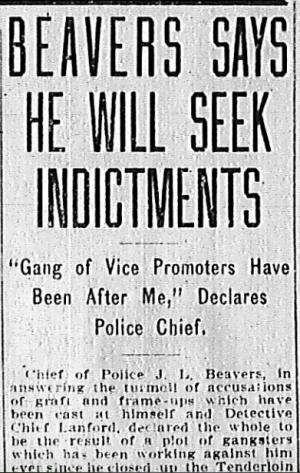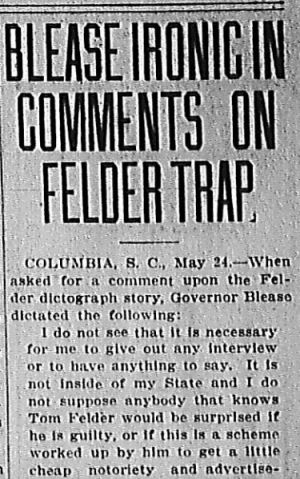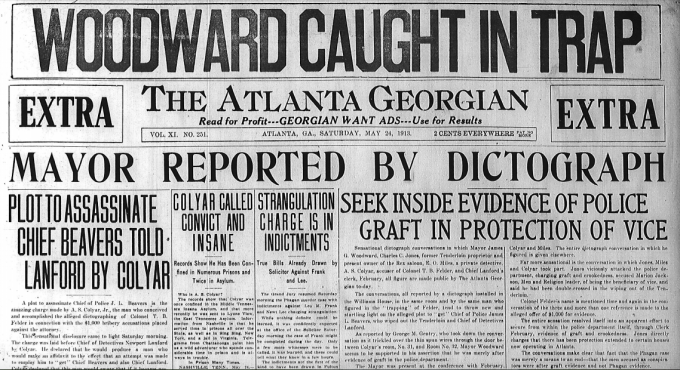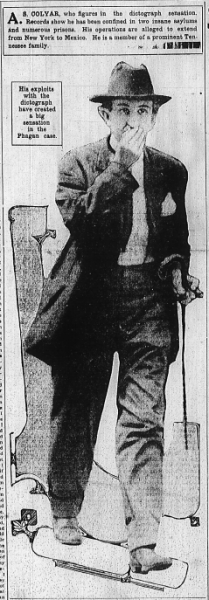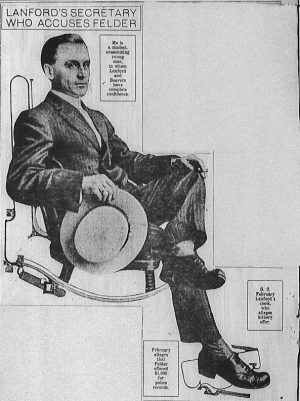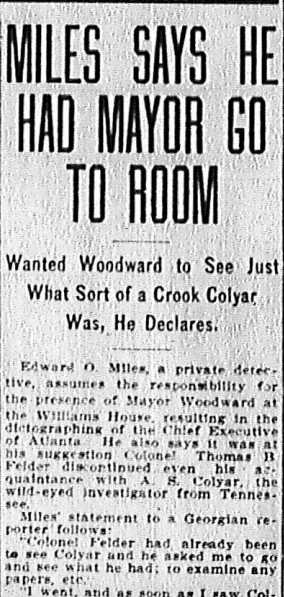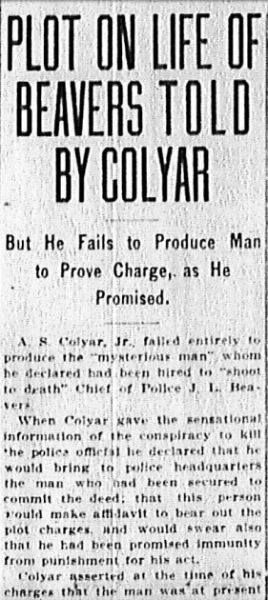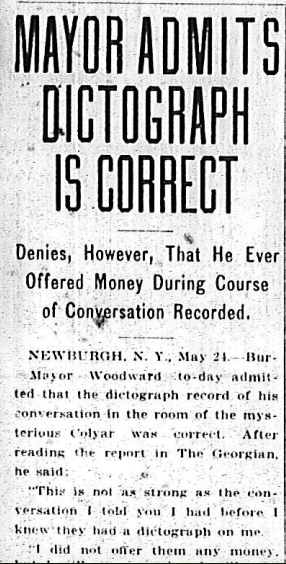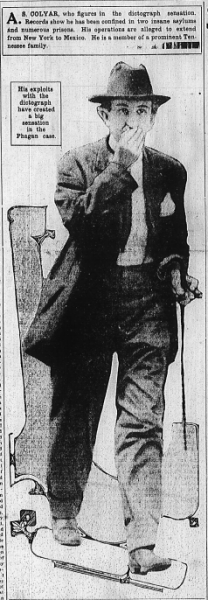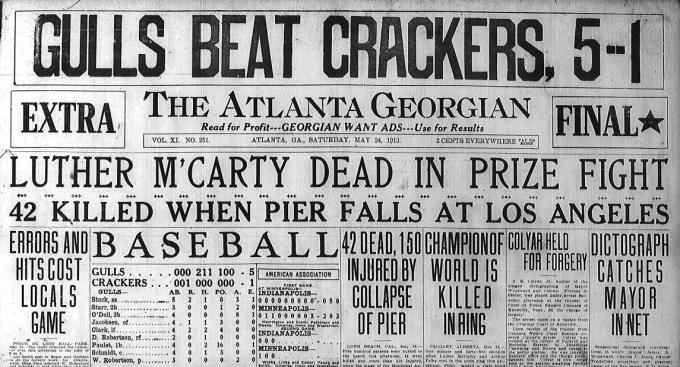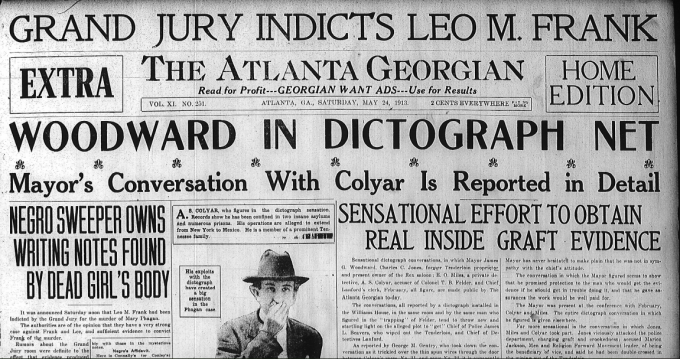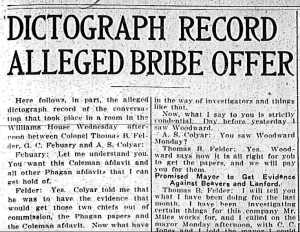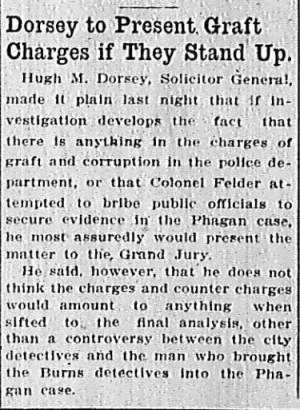 Another in our series of new transcriptions of contemporary articles on the Leo Frank case.
Another in our series of new transcriptions of contemporary articles on the Leo Frank case.
Atlanta Georgian
Sunday, May 25th, 1913
Hugh M. Dorsey, Solicitor General, made it plain last night that if investigation develops the fact that there is anything in the charges of graft and corruption in the police department, or that Colonel Felder attempted to bribe public officials to secure evidence in the Phagan case, he most assuredly would present the matter to the Grand Jury.
He said, however, that he does not think the charges and counter charges would amount to anything when sifted to the final analysis, other than a controversy between the city detectives and the man who brought the Burns detectives into the Phagan case.
* * *
Atlanta Georgian, May 25th 1913, “Dorsey to Present Graft Charges if They Stand Up,” Leo Frank case newspaper article series (Original PDF)

